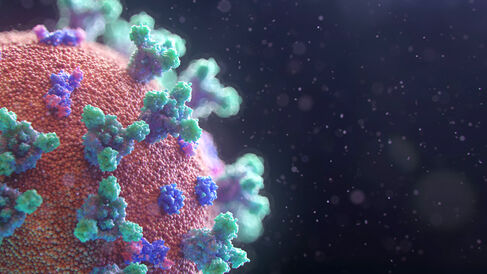
A group of scientists from Cambridge, Greece and Belgium has discovered that the genome region of coronaviruses that specifies the viral Spike protein is highly unstable and mobile.
Spike is the protein that binds to human cells to allow the virus to gain entry. By using genome sequence analysis, researchers from the University of Thessaly, Greece, and Ghent University, Belgium, in collaboration with Professor Steve Oliver from our Department, found that this RNA region can be readily swapped between even distantly related coronaviruses. Furthermore, the virus can pick up additional genes from coronaviruses, other viruses, and even animal hosts, with genes acquired in this way often found next to the Spike region. This is important since the vaccines that are most widely and effectively used to combat the current pandemic raise an immune response to the Spike protein. It is mutations in Spike that have resulted in highly infectious variants that promote the rapid spread of COVID-19. Since current vaccines may be unable to protect against a COVID virus with a new Spike protein, it may be beneficial to include additional viral proteins in future generations of the vaccine. The group's findings also raise concerns that genes for highly infectious Spike variants might be transferred to other coronaviruses capable of causing severe human diseases. These new perspectives on coronavirus evolution should inform both COVID-19 vaccine development and the worldwide strategy for vaccination.
The research is published in the journal Molecular Biology and Evolution and was supported by the Bodossakis Foundation and the University of Thessaly.
